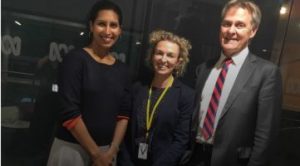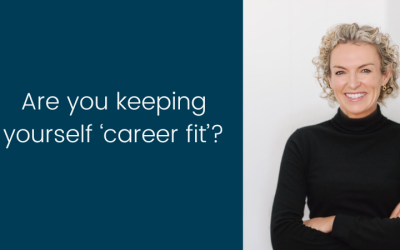Last week I had the opportunity to join Dr Ranjana Srivastava, oncologist, Fulbright scholar and published author as well as Torrens University vice-chancellor Professor Justin Beilby on ABC Radio’s ‘The Conversation Hour’ to discuss what happens if you received an ATAR that is less than what you were anticipating.
The crux of this conversation, was that there is a lot more that predicts your future than an ATAR and there are also pathways to every course if you didn’t get the ATAR that you were hoping for.
Pathway is a term that is used to refer to the different ways you can get into a course. They offer an easy transition between courses at different levels, so that you can start with a certificate and progress right through to postgraduate study. There are a range of pathways into your dream degree, and the traditional path from Year 12 to uni is only one of them.
Here are some of the most common pathways that you can consider if you didn’t get the ATAR you needed for your first preference course:
Transfer from one campus to another
You can start your course at a campus with a lower ATAR requirement, then apply to transfer to your desired campus after completing the specified number of units. For example, you could apply for a course at Deakin Geelong or Deakin Warrnambool and then later transfer to the same course at Deakin Burwood if you study hard and get the required marks to satisfy their requirements. This may seem like a major inconvenience at the time, but spending on year away from home (assuming you can afford to do so) is not very long in the scheme of things.
Transfer from one course to another
You can also apply to study a course with similar subjects or major sequences, but a lower ATAR, and use this as a pathway into your ideal course. For example a friend of mine desperately wanted to study Physiotherapy but missed out on the required ATAR. Instead she did several pathway courses including Certificates in Remedial Massage and Personal Training which allowed her to develop skills related to physiotherapy but also gave her a taste of whether she would like working with people in such a hands-on way and also a taste of working in the rehabilitation area. She later went on to commence a Bachelor of Human Movement and later transferred into Physiotherapy. This was a longer road to becoming a Physiotherapy, but she thoroughly enjoyed the journey along the way and also believes she is a much better physio as a result of having experience in these other areas.
Study a Diploma pathway course
Studying a diploma course at some TAFES will give you a fast-track pathway straight into an undergraduate degree. For example completing a 2 year Diploma of Nursing at Holmesglen will give you the option of getting out into the workforce and working as an Enrolled Nurse or the option to take up direct entry into the 2nd year of the Bachelor of Nursing degree which will allow you to work as a Registered Nurse.
Start working and apply later as a mature-age student
Not everyone is ready for university and I meet many students who drop out of uni after one semester as they are not really committed to studying the course that they have selected. University is for students who enjoy learning and if this is not you, then it is worth considering other options such as commencing full-time work or looking for an Apprenticeship. I meet many clients who in hindsight wish that they had joined the workforce or started a trade rather than going to university. It is important to be true to yourself and not to go to university / choose a course just because it is popular with your peers or because you want to please your parents.
Take a productive gap year
If you are thinking of taking a gap year, then use it productively. Sitting at home playing video games for a year is not going to get you any closer to working out what you want to do. However, a year spent doing some travel, working in a few different part-time jobs, studying some short courses or doing volunteer work will enable you to ‘test’ to some of your ideas to see if they interest you.
There are also some fantastic free or very inexpensive online courses (Massive Open Online Courses (MOOCs) which will allow you to try some different courses in the field you are interested in. For instance, if you are thinking about a career in marketing then there are a multitude of digital marketing courses that you could study online to give you a taste of SEO, copywriting, Google Analytics etc. You can also add these courses to your resume to show future employers that you have taken the initiative to learn about some of these key marketing areas.
If you are interested in reading more about what was discussed on The Conversation Hour, then click on the link below:





